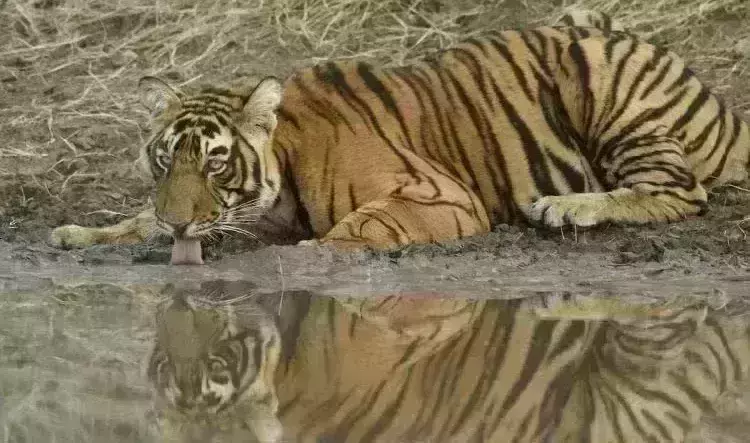
Indian tigers are inbreeding due to loss of habitat
text_fieldsIndian tigers are inbreeding due to loss of habitat, which has fragmented their populations and kept tigers from finding unrelated mates, finds a new study published in the journal Molecular Biology and Evolution.
About 70 per cent of the world's tigers live in India and the Indian tigers have the highest genetic variation compared to all tiger subspecies in the world. The population fragmentation and the inbreeding threatens their genetic variation and endanger them further.
Although tigers have received significant conservation attention, very little is known about their evolutionary history and genomic variation which is critical to any endeavours of conservation.
"As the human population started expanding, so also their signatures on the land. We know that some of these signatures would result in disrupting the ability of tigers to move," said Uma Ramakrishnan, the co-author of the research.
Researchers from the National Centre for Biological Sciences (NCBS), Stanford University, and zoological parks and NGOs across the world recently completed a three-year study in which they sequenced whole genomes from 65 individual tigers from four subspecies of the feline, and conducted a variety of population genomic analyses that quantify genetic variability.
Genetic variation, possible impacts of inbreeding, and demographic history, and possible signatures of local adaptation were all analyzed in the study.
The results showed that tigers from northeast India are genetically distinct from other populations in India and several individual tigers in the country had a low variation, suggesting possible inbreeding.
Human activities and climate change have led to an increase in the loss of the animal's natural habitat forcing them to be confined into their protected area.
"Now, they can only mate with the other tigers in their population. Over time, this will result in inbreeding, they will end up mating with their relatives. Whether this inbreeding compromises their fitness, their ability to survive, we do not yet know," said Ramakrishnan, molecular ecologist and assistant professor at the National Centre for Biological Sciences, Bangalore.
The study shows the significance of including information on genetic variation in population management and conservation programs of tigers.


















